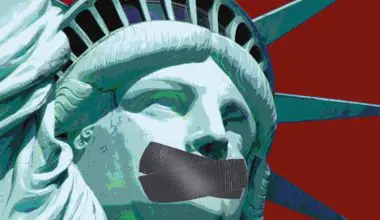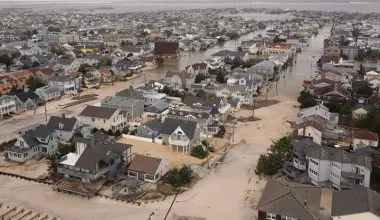A few months ago, a rumor swept the preparedness corners of the Internet: Federal officials had gone to a Mormon cannery in Tennessee and demanded its customer lists. The manager of the cannery heroically refused (helped along by the fact that most customers conducted business in nice, anonymous cash). Mormon canneries, as you may know, specialize in longterm storage foods—their customers are seriously into preparedness.
And many people who are seriously into preparedness have feared for years that, in any real emergency or even in just the ordinary development of a police state, governments would consider them to be “hoarders” (if not outright “terrorists”). Government agents would at best raid their goods, and at worst haul them off to the infamous and longrumored camps.
The Mormon cannery inquisition never happened. As quickly as the rumor spread, it was debunked. A young lady going by the handle SouthernBelle- Prepper took the initiative to investigate and post her results on YouTube. She managed to get through to the two Mormon canneries in Tennessee—neither had been visited by snooping feds. Eventually the LDS (Mormon) church issued an official debunking.
But this scary tale doesn’t have to be true in order to offer illumination into the relationship between “preppers” and government.
For one thing, at the same time the bogus account hit the ‘Net, real Tennessee officials were doing something any seriously prepared person would consider bad enough. They were going door-to-door asking residents about their emergency preparations. According to Nashville’s NewsChannel5.com, “Metro Public Health and the Tennessee Department of Health [were] using a tool designed by the Centers for Disease Control and Prevention” to assess the emergency preparedness of individual households.
Now, I expect that the door-to-door visits in Tennessee were innocent—in the “I’m from the government and I’m here to help you” sense. Surveyors were probably a) sincerely trying to gauge the level of short-term disaster preparedness in the community, b) hoping to make a plan for addressing any lack, and c) (most importantly) collecting data that would help them get funds from Washington, D.C.
As I write this, it’s not clear that any federal agency participated. No CDC survey form has emerged and this may have been strictly a Tennessee initiative. But it did happen.
And any Tennessean who is well prepared for emergencies and isn’t a complete dolt is likely to have answered something along the lines of “Get the &^%$#@! off my doorstep right now— and mind your own &^%$#ing! business.” As well they should.
Because even in these post-Katrina, post-9/11 days when government officials have decided that we should prepare for emergencies, governments still have a distinctly schizoid—if not downright hateful—view of those who actually do prepare.
Table of Contents
WE PARANOIDS AND OUR (REAL) ENEMIES
I use the word “paranoid” in comradely fashion. Yes, I am among the paranoid— and who wouldn’t be, when people just like me (and most of my friends) have repeatedly been defined as “domestic terrorists”?
This redefining of ordinary people into “terrorists” has been going on at least since the 1990s, but has ramped up as the federal government has exerted stronger and stronger influence on law enforcement.
Who is a domestic terrorist, you might ask? Well, the good news is that you don’t have to bomb anything or even threaten anybody in order to be one. Hold “anti-government” views? You’re a suspect. Homeschool your kids? Ditto. Insist on your constitutionally protected rights? Promote the Second Amendment? Ask that friendly police officer to state the law that allows him to “detain” you? Hold apocalyptic religious views? Read survivalist novels? Fear economic collapse? Believe in conspiracy theories? Buy gold or silver? Ditto, ditto, ditto: police are being trained and encouraged to consider you a possible “terrorist” suspect.
In fact, just this morning a friend sent me a copy of an FBI bulletin being circulated to surplus stores, specifically telling them to be suspicious of these (among other) “potential indicators of terrorist activities”: paying cash, insisting on privacy, uttering “anti-U.S.” statements (aka comments critical of the federal government), or making bulk purchases of flashlights, bi-pods, or meals-ready-to-eat. Bulk purchasing of MREs is a pretty standard step in many people’s preparedness plans.
Bottom line: you’re a “terrorist” suspect if you stockpile anything—guns, ammo, medical supplies, hand tools, and yes, food. Therefore, anyone who is serious about emergency preparedness is automatically a suspected “domestic terrorist.”
THE PUBLICLY ACCEPTABLE LEVEL OF PREPAREDNESS
But of course, since 9/11 and Hurricane Katrina, certain levels and types of preparedness have ceased being “paranoid” and have become our civic responsibility. A certain level of stockpiling is actually encouraged by government, most notably DHS/FEMA and a host of local and state agencies.
What level is that? Well, to put it bluntly, we’re now encouraged to make marginally sufficient preparations to avoid starving, bleeding to death or dying of thirst before the government rescues us. FEMA still promotes threeday emergency kits on its www.ready. gov website.
Although the items it recommends for a kit are a pretty good start, the very idea that we should have a mere threeday emergency supply got thoroughly debunked by Katrina. The agency that was in charge of post-Katrina rescue efforts (and botched them so notoriously) is well aware that in a widespread disaster, it may take five, seven or more days for outside help to arrive. In some scenarios, there will be no outside help.
Yet FEMA’s gospel recommendation remains the inadequate three-day kit.
Maybe they figure most people won’t do more than that, and maybe they’re right. But the fact that federal officials supposedly in charge of emergency management are peddling three-day snake oil and failing to advocate or even mention the need for any deeper level of personal preparedness is irresponsible. But that’s because there’s an “establishment” to take care of us.
THE EMERGENCY-MANAGEMENT ESTABLISHMENT
An emergency-management establishment has long existed. It was big in the 1950s, when “civil defense” officials encouraged us to duck-and-cover to dodge nuclear blasts and assured us that they had well-stocked bomb shelters nearby for our safety. Then it eventually went dormant until reawakening around 9/11.
Today, even small towns have their emergency management boards, while professional emergency managers join national organizations, hold conventions and present thick papers.
To whatever extent this helps individuals and official responders become better prepared to handle the unexpected— great. Some local emergency management efforts are excellent.
But do a search on “emergency management” and what you’ll mostly find are bureaucrats talking in droning bureaucratese about how to find ways to “measure effectiveness.” Because measurements— whether or not they have anything to do with real-world results during a disaster—are the big key to getting federal money. Emergency management experts are, in short, trying to justify their existence and perpetuate their jobs by coming up with measurements that will appeal to other bureaucrats.
Amid this, you’ll find much vague talk of the need to “encourage community preparedness.” But you’ll find few specifics— and little or no recognition that the first lines of defense in any disaster are ourselves and our friends, family and neighbors. That is the reality. Those professional emergency managers and their crews, if they turn up at all, turn up later. If they do turn up, they may or may not bring the kind of help we need—or want. (Katrina survivors forced at government gunpoint out of the homes they had stocked and were well prepared to defend can tell you that.)
GOVERNMENT CONTINUITY
Why are We the People generally left out entirely or encouraged to underprepare? Therein lies another story.
It’s an open secret that government preparedness efforts—going back to 1950s civil defense—have always been largely devoted to something called “continuity of government” or “continuity of operations.”
Huge efforts, usually secret and involving unknown billions of dollars, have been undertaken for a single purpose: to preserve the federal government in event of disaster. In fact, that is FEMA’s number one mission. There isn’t enough space in this article to describe all the covert emergency facilities, executive orders, security directives, contingency plans, exercises, and secrecy dedicated solely to preserving members of Congress and federal bureaucracies. Enter “Continuity of Operations” in Wikipedia’s search box to start a deeper exploration.
Some might ask, “What’s wrong with preserving government?” Nothing, if you believe that government is the only thing that can preserve order after a disaster. (I believe government is more likely to “preserve disorder,” to paraphrase Chicago Mayor Richard Daley.)
However, the details should disturb even those who trust officials to do the right thing. Why are billions being spent on shelters and evacuation plans for our servants, while we’re (belatedly) being sold bland, semi-helpful three-day kit pabulum? Why are there executive orders authorizing the federal government to operate a virtual military dictatorship in any vague emergency declared by the President—including forcing citizens into slave labor? Why is there a plan, if elected officials are dead or unavailable, to replace the entire U.S. government with a non-elected government? This is all publicly available, verifiable fact.
I’m not (quite) paranoid enough to call this An Evil Plot. On the contrary, I see this as a perfectly ordinary phenomenon: the main aim of every established institution is to preserve itself, period. The U.S. federal government, being the biggest institution on the planet, naturally has the biggest drive and biggest plan for self-preservation.
Having FEMA-endorsed three-day kits makes us less likely to make demands on government services for a few days after a disaster. That’s good for government and somewhat helpful to us. But being prepared enough to take care of ourselves without any government “help”—or worse, to push back against government if it attempts the kind of “help” we don’t want—now that doesn’t fit into any bureaucrat’s idea of self-preservation.




